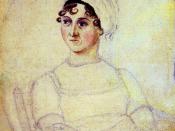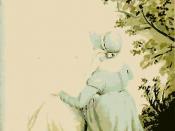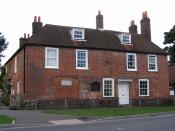Jane Austen's Pride and Prejudice and it's 2001 film appropriation, Bridget Jones's Diary, are the two texts I chose to explore for this assessment. All the major themes of Pride and Prejudice that reflect the world of Regency England's high society, which include attitudes towards love and the institution of marriage, the role of men and women, the importance of self-improvement and reputation have been redefined within the constructs of British society in the period between 1995 and 2001.
In order to have come to this conclusion, I researched Jane Austen's era, in particular the life of country gentry, in a range of books and websites. As expected, romantic relationships were not necessary for a marriage to be deemed successful, as the securing of a family of good connections and considerable wealth were the most important aspects of this institution. Furthermore, my investigation revealed that an economically advantageous marriage was of even more importance at the time that Pride and Prejudice was written because of Britain's engagement in the Revolutionary war with France, which had caused a period of enormous inflation.
In Bridget Jones's Diary romantic feelings and sexual attraction were essential prior to any kind of commitment, with commitment and love appearing to be a taboo subject for over-30's "singletons". This highlights the need for modern couples to ensure as much compatibility to begin with, so as not to end up part of the statistic of 1 in 3 marriages that end in divorce. In Regency England however, divorce was only granted through an act of parliament and only to a wealthy husband.
The creation of the term "singleton" alone, by one of Helen Fielding's friends, exemplifies the modern acknowledgement of single people today, as it does not carry with it the negative connotations that "spinster" has.


